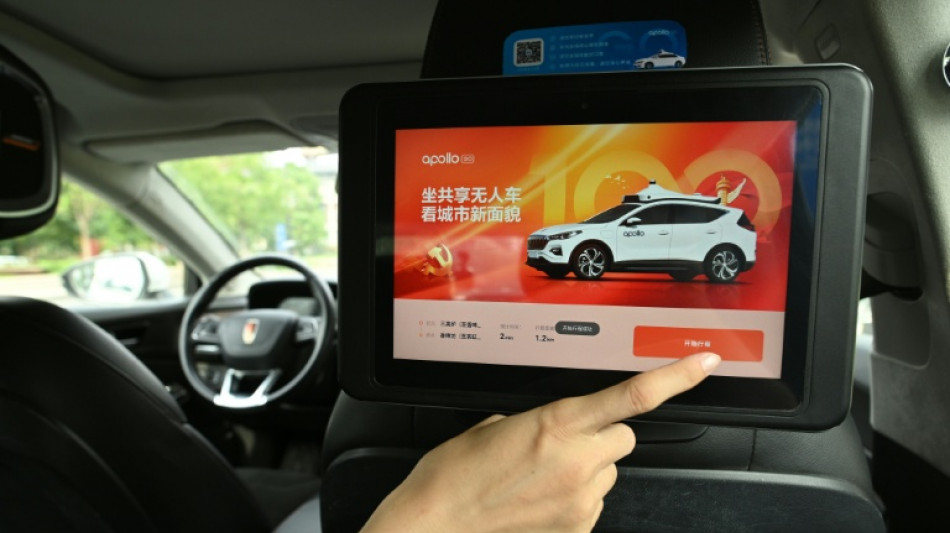
SCS
0.0200

Chinese internet giant Baidu plans to launch its robotaxis on rideshare app Lyft in Germany and Britain in 2026, pending regulatory approval, the two companies said on Monday.
Last month, Baidu announced a similar agreement with Uber in Asia and the Middle East as it seeks to take pole position in the competitive autonomous driving field both at home and abroad.
Lyft and Baidu said Monday that "in the following years" the fleet of Apollo Go driverless cars will be expanded to thousands of vehicles across Europe.
They did not specify which other countries the cars would be deployed in, and it was not clear how long it might take to gain regulatory approval for the initial deployment.
Driverless taxis are already on some roads with limited capacity in the United States and China, most notably in the central city of Wuhan, where a fleet of over 500 can be hailed by app in designated areas.
Their reach is spreading, with Shanghai's financial district Pudong recently announcing a batch of permits for multiple companies to operate robotaxis.
China's tech companies and automakers have poured billions of dollars into self-driving technology in recent years, with intelligent driving the new battleground in the country's cutthroat domestic car market.
Baidu is not alone among Chinese companies in searching to expand its foothold abroad.
Its rival WeRide is also active in the Gulf region, and in January announced it had been picked to lead a small pilot project in Switzerland.
Pony.AI, another Chinese company, said in May that it had signed a deal to launch its self-driving taxis on Uber in "a key market in the Middle East later this year".
San Francisco-based Lyft in April said it had agreed to buy German taxi app Freenow, planting a flag in the European market.
The acquisition marked Lyft's "most significant expansion outside North America", the group said.
M.Jelinek--TPP